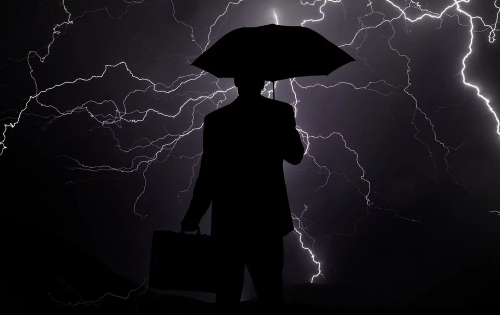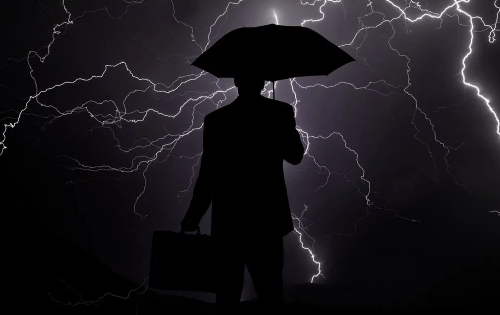


The US could be in a recession due to the coronavirus, says Fed Chairman Jerome Powell. Would that throw the crypto market into a recession, too?
In brief
Appearing on NBC’s “Today” show this morning, US Federal Reserve Chairman Jerome Powell said, “We may well be in a recession.” He ascribed the country’s economic downturn to the coronavirus, the global pandemic that has infected over half a million people and has billions on lockdown.
As the coronavirus started sweeping through the US, it battered the US economy and crashed global markets. Bitcoin was not exempt. At one point, the price of BTC sunk to a low of $4,100, its worst price since March 2019, before recently recovering to around $6,600 as stocks have ticked back up.
But if Bitcoin collapsed in sync with the rest of the market, how will it do if America sinks into a deep recession?
A recession constitutes two-quarters of successive decline in gross domestic product (GDP). That looks likely in the US. A staggering 3.3 million US citizens filed for unemployment benefits last week—a record high. Late last night, a two trillion-dollar stimulus package to help the economy keep afloat during the crisis was approved by the US Senate and will move to the House of Representatives for a vote.
But Powell told NBC there’s a difference between this recession and a normal recession: “There is nothing fundamentally wrong with our economy. Quite the contrary. We are starting from a very strong position.”
According to Pankaj Balani, CEO of Delta Exchange, the Bitcoin market is equally healthy. “The key difference in this crisis, though, is the speed of price movement. Whatever happened in five months in the mortgage crisis happened in five days in the corona crisis. Hence, the recovery should also be a lot faster,” he told Decrypt.
Though Bitcoin earlier this month fell along with global markets, Balani predicted that “as markets settle we will see assets decouple from one another and prices will be driven by idiosyncratic risks instead of systemic risks.”
Bitcoin may even benefit from a recession, said Balani. Central banks like the US Federal Reserve finance stimulus packages by increasing the monetary supply. “This will put pressure on currencies and can turn out to be positive for Bitcoin prices in the medium to long term,” he said.

Simon Peters, a market analyst at trading site eToro, agreed. He told Decrypt, “Due to the Fed announcing unlimited [quantitative easing], investors could soon be looking to BTC as an inflation hedge against a depreciating dollar.”
He added that investors are also less likely to sell Bitcoin because of the upcoming halving event. It’s slated to occur sometime around the middle of May—whereupon the supply of Bitcoins issued as mining rewards will halve, due to a feature hardcoded into the Bitcoin protocol. Some investors predict the halving to lead to a rise in the price of Bitcoin. The event “theoretically should reduce selling pressure from miners,” said Peters.
There’s another reason a US recession might not be bad for the crypto economy, noted Peters: The coronavirus originated in China, which has since contained the virus and is beginning to resume economic production. Much of Bitcoin’s hash power is concentrated in China—a staggering 54% of hash power is controlled by Chinese miners alone, according to a December 2019 report by CoinShares. Consequently, said Peters, “We can expect mining operations, and in particular the network hashrate, to start picking up from the recent slump.”
“These conditions could in fact be a perfect storm for Bitcoin's next bull market, resulting in some positive moves at the end of this year and into 2021,” he concluded.
But, in terms of the American economy as a whole, US President Donald Trump doesn't want to wait that long. He’s hoping the US economy can be humming back along by Easter. But as the country’s leading infectious disease expert, Dr. Anthony Fauci, told CNN, “You don’t make the timeline; the virus makes the timeline.”
In the case of Bitcoin, the protocol makes the timeline.
Article produced by Robert Stevens
https://decrypt.co/23698/how-would-a-us-recession-affect-bitcoin
